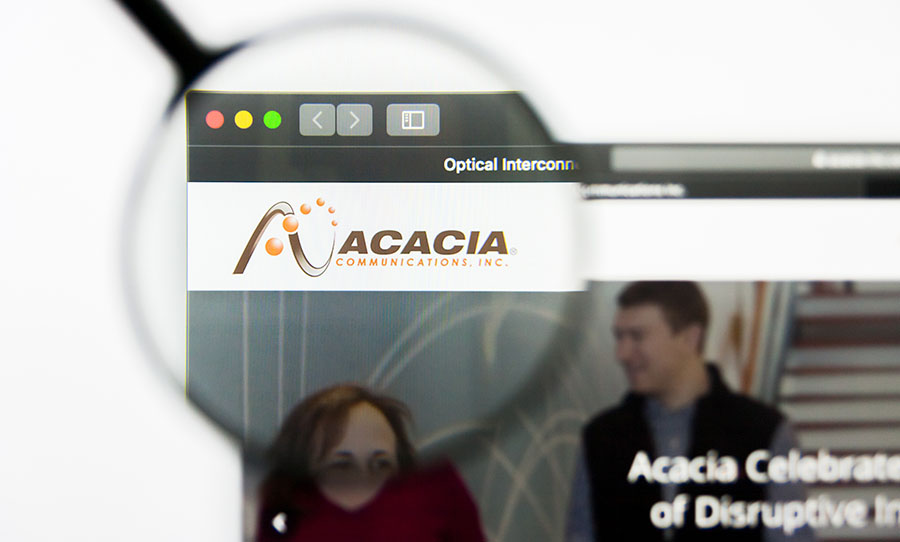Nestle SA (NESN:VX; NSRGY:OTC, Sfr 111.68) continues its pattern of consistent growth. In results for the first half (Nestle reports semi-annually, like most Swiss companies), underlying earnings per share increased almost 16% in constant currency, though reported earnings fell by 12% as the prior year included an extraordinary gain from the disposal of the U.S. confectionery business. Organic growth stood at 3.6%, including 1% of pricing increase, led by the U.S. and Brazil.
Full-year guidance was confirmed, with anticipated organic growth around 3.5% and underlying profit margin at 17.5%. The announced sale of Nestle's skin health business is expected to be completed in this period for the agreed price of Sfr 10.2 billion.
Nestle also continued its recent share buy-back program, repurchasing Sfr 4.2 billion of shares. The program, announced in 2017, has another Sfr. 5.5 billion before it is completed, expected by the end of this year.
Innovation across the board
Nestle is remarkable innovative for such large company. Just in the last couple of months, Nestle has announced a range of innovations including use of a blockchain platform for supply chain transparency, allowing consumers to track their food right back to the farm. It is the first major food company to introduce such an initiative.
In other initiatives, many pertaining to environmental issues, it has introduced a new snack bar in a recyclable paper wrapper; a chocolate product using only the cocoa fruit (beans and pulp) with no added refined sugar will be introduced in Japan this autumn, with other countries to follow next year; a latte has been launched using no dairy but only plant-based ingredients; a new 100% recycled plastic water bottle has been launched in Europe, with Poland Spring to follow by 2022; its plant-based food range in Europe has been expanded; and in a joint venture with a Swedish bike brand, a new bike will be sold made entirely from recycled Nestle aluminum coffee capsules. Nestle has introduced a new line of chocolate candies in Britain called "More," which contain more protein and less sugar than the traditional version; KitKat More comes to market this week.
Many of these initiatives will only be marginal, both to Nestle's bottom line and also to health or the environment; indeed, some might be called gimmicky. And there is risk, for example, in the program to manufacture chocolate bars with no added sugar. We have seen consumer resistance when companies change formulae—and the taste—of favorite brands. But some innovations have the ability to become significant if they meet with consumer acceptance in their test markets. And they demonstrate a commitment to innovation, not always apparent at large consumer companies.
Food to help illnesses
One initiative of Nestle, if entailing large capital investment and modest to the bottom line (at present) is the Health Science division, which produces science-based medical nutrition, including foods aimed at treating specific, often rare, diseases. Among other conditions, it is working on foods for healthy aging and fighting allergies.
One valuable program is to provide nutrition for cancer patients, an area where the company believes it can make a meaningful difference. Most cancer patients experience weight loss or malnutrition during their illness, often aggravated by the medical treatments, slowing recoveries and making patients less responsive to treatment. Nestle Health Science is providing nutritional support, specifically designed for patients, to 400,000 cancer patients. In real-time access to patients, meal plans are tailored to symptom and side-effects in consultation with doctors. Nestle believes that this program can be scaled significantly.
Nestle has consistent earnings growth and annual dividend increases, with a strong balance sheet. But the stock is not cheap. It has moved significantly higher this year, up almost 40%, and is now valued at the high end of its historical range. Its yield of just under 2.2%, is a 10-year low, though it did trade at a lower yield for most of 30 years prior. Because of its quality, consistent growth, and balance sheet, we are holding. But because of its valuation, not buying.
Slammed on all sides
Hutchison Port Holdings Trust (HPHT:Singapore, US$0.153) has been buffeted by both the China tariff dispute and the Hong Kong protests, hurting both the business and the stock. Hong Kong throughput is down 7% year to date, while the stock plunged by over one-third in August. Negatives are now priced in and the stock is oversold, selling at 40% of book and yielding over 10%. When the U.S.-China trade dispute is settled, the stock should rebound promptly, but in the near term, the outlook appears negative. We are holding, but not yet buying.
Kingsmen Creatives Ltd. (KMEN:SI, 0.50) reported strong revenue, up 18% in the first half, though profit was down because of investments in new businesses. The pipeline is strong. At the current price, Kingsmen is trading at a 15% discount to book on a solid balance sheet, and yielding 5%. It can be accumulated at this level.
Adrian Day, London-born and a graduate of the London School of Economics, heads the money management firm Adrian Day Asset Management, where he manages discretionary accounts in both global and resource areas. Day is also sub-adviser to the EuroPacific Gold Fund (EPGFX). His latest book is "Investing in Resources: How to Profit from the Outsized Potential and Avoid the Risks."
[NLINSERT]Disclosure:
1) Adrian Day: I, or members of my immediate household or family, own shares of the following companies mentioned in this article: None. I personally am, or members of my immediate household or family are, paid by the following companies mentioned in this article: None. My company has a financial relationship with the following companies mentioned in this article: None. Funds controlled by Adrian Day Asset Management hold shares of the following companies mentioned in this article: Kingsmen Creative, Nestle and Hutchison Port Holdings. I determined which companies would be included in this article based on my research and understanding of the sector.
2) The following companies mentioned in this article are billboard sponsors of Streetwise Reports: None. Click here for important disclosures about sponsor fees. The information provided above is for informational purposes only and is not a recommendation to buy or sell any security.
3) Statements and opinions expressed are the opinions of the author and not of Streetwise Reports or its officers. The author is wholly responsible for the validity of the statements. The author was not paid by Streetwise Reports for this article. Streetwise Reports was not paid by the author to publish or syndicate this article. Streetwise Reports requires contributing authors to disclose any shareholdings in, or economic relationships with, companies that they write about. Streetwise Reports relies upon the authors to accurately provide this information and Streetwise Reports has no means of verifying its accuracy.
4) This article does not constitute investment advice. Each reader is encouraged to consult with his or her individual financial professional and any action a reader takes as a result of information presented here is his or her own responsibility. By opening this page, each reader accepts and agrees to Streetwise Reports' terms of use and full legal disclaimer. This article is not a solicitation for investment. Streetwise Reports does not render general or specific investment advice and the information on Streetwise Reports should not be considered a recommendation to buy or sell any security. Streetwise Reports does not endorse or recommend the business, products, services or securities of any company mentioned on Streetwise Reports.
5) From time to time, Streetwise Reports and its directors, officers, employees or members of their families, as well as persons interviewed for articles and interviews on the site, may have a long or short position in securities mentioned. Directors, officers, employees or members of their immediate families are prohibited from making purchases and/or sales of those securities in the open market or otherwise from the time of the interview or the decision to write an article until three business days after the publication of the interview or article. The foregoing prohibition does not apply to articles that in substance only restate previously published company releases.




























































